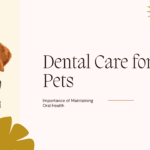Some of us love them small, some of us love them big, but all of us love dogs. For those who own them as pets, dogs are like little family members and thus deserve the very best of care. And nutrition is one of the most critical aspects of the diet of dogs affecting not only their health but moods, personality and development. That is why we shall today discuss all you need to know about the nutritional requirements of dogs.
Dogs, their nutritional requirements and how to meet the same
Let us start by considering the various types of nutrients needed by dogs:
1. Proteins
Proteins are one of the most crucial nutrients for humans and dogs alike. Dogs, for the development and maintenance of muscles, tissues, and organs, require proteins. Puppies and younger dogs may require them in higher quantities during their growth years. Consumption of proteins should be connected with rigorous exercise regimes. Some of the good sources of protein for dogs include meat, poultry, fish, and eggs.
2. Fats
Being mainly carnivorous, dogs tend to need proteins and fats more than carbohydrates. Fats thus served as the primary source of energy for them. They also aid in the absorption of vitamins and thus can contribute to healthy skin and coat. Some of the most valuable recommended fatty acids are omega-3 and omega-6. Some of the most important sources of fats include fish oil, chicken fat, and flaxseed.
3. Carbohydrates
Dogs can benefit from the consumption of carbohydrates as an energy source in limited doses. Grains are the primary source of carbohydrates for your dogs, but many dogs can have dietary sensitivities or allergies to certain grains. Some caution is thus suggested when feeding grain to your dogs. Brown rice, oats, fruits, vegetables, etc., serve as a vital source of carbohydrates for dogs.
4. Vitamins and minerals
Besides the nutrients mentioned above, dogs also require a balanced mix of vitamins and minerals for various bodily functions.
Among vitamins, dogs need an adequate amount of all, including vitamin A, vitamin B, Vitamin C, Vitamin D, and vitamin E. Dogs may require a proportionately higher amount of Vitamin D and Vitamin A than humans.
As for minerals, dogs require minerals like calcium, iron and phosphorus. Dogs tend to require a higher amount of calcium.
Milk and milk products, fruits, and vegetables are good sources of vitamins and minerals.
Commercial dog food products tend to have a decent amount of these nutrients. Your veterinarian can also make recommendations on how to include them in your diet.
5. Water
As all living things need, dogs need water to survive. It is essential for digestion, metabolism, regulating body temperature, and overall hydration. The water your dog drinks should be clean, cool and fresh (change the water in the bowl every few hours). The water requirements may be higher in case your dog is on dry food.
Frequently Asked Questions (F.A.Q.s)
There are several questions that the readers may have about the nutritional requirements and diets of dogs. The following are some of the most Frequently Asked Questions (F.A.Q.s):
Question: What are the factors affecting the nutritional requirements of a dog?
Answer: The nutritional requirements of dogs vary depending on several factors:
- Age – Puppies have different needs than adult dogs.
- Size – Larger dogs often need more food and nutrients.
- Activity levels – More active dogs tend to need higher calories (from carbohydrates and fats).
- Health condition – Dogs with a health condition may have unique nutritional requirements. Pregnant female dogs require more nutritious food.
- Gender – The gender of a dog also affects its nutritional requirements. Female dogs, for example, may need more iron.
- Other factors – Dogs on dry food, for example, need more water.
Question: Tell me some tips to ensure that the nutritional requirements of my dog are met.
Answer: The following are some of the helpful tips for ensuring that your dog is getting the best nutrition:
- Consult your veterinarian to determine the appropriate food portion sizes and nutrient profiles for your dog’s specific needs. Periodically discuss this diet with a veterinarian to accommodate for the age and lifestyle changes of your pet.
- Consider your dog’s food sensitivities and allergies when preparing their diet place.
- Ensure that you are not overfeeding the dog.
- A balanced diet should be accompanied by portion control (as your dog won’t know how much is enough) to ensure that they make the most of what they eat.
- Even a balanced diet can lead to health issues if your dog doesn’t get the required levels of exercise.
- Monitor your dog’s condition continuously to check for any adverse impact on its health, especially after any dietary changes.
- Continuously monitor the weight of the dog to ensure that you are overfeeding them, and consult a veterinarian.
- If your dog is not eating its food for some reason, then consult a veterinarian.
- A good diet plan for your dog will contain a diversity of food items. It may also create space for dog treats if you intend to provide the same to your dog regularly.
Question: How to know if I am overfeeding or underfeeding my dog?
Answer: An underfed dog will start growing weaker and lazier or have any health issues. An overfed dog, on the other hand, may grow obese. Both these are adverse health conditions and can lead to many complications. Please note that your dog may get obese from a lack of regular exercise, so you must ascertain the reason for obesity before cutting on its diet. If you think your dog is showing any such signs, you may want to consult a veterinarian.
If the reader has any other questions, they should feel free to ask them here.
The Bottom Line
One can easily wrap up the above discussion by concluding that every dog has unique nutritional requirements that must be catered to give them a healthy and happy life.







